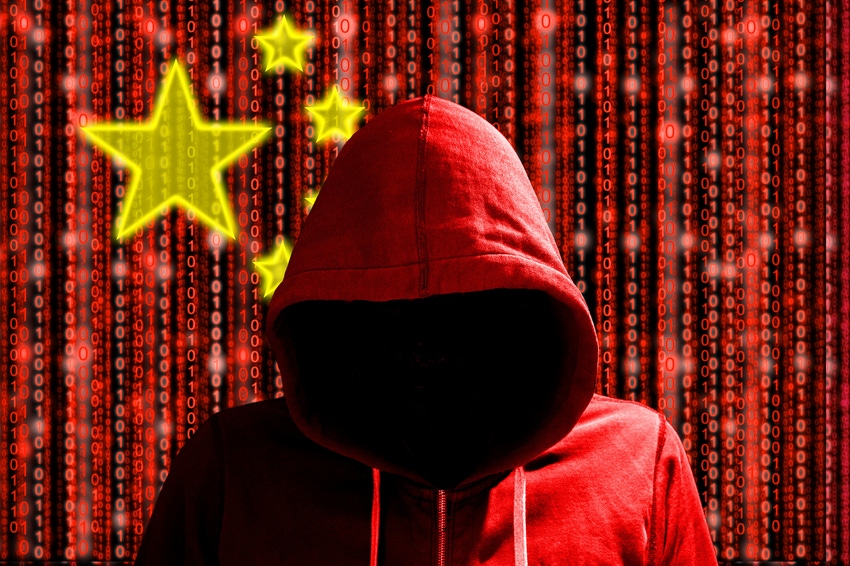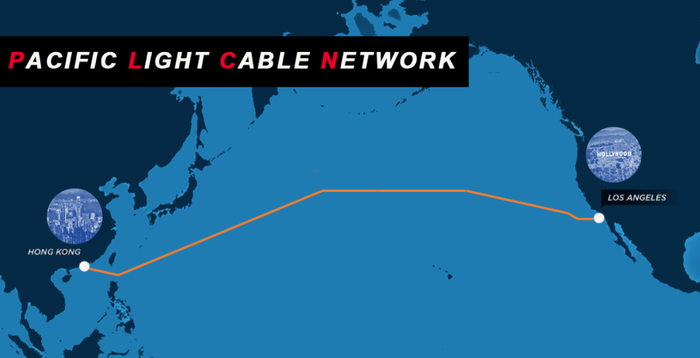The US Department of Justice is reportedly on the verge of putting the brakes on a Google and Facebook funded Pacific subsea cable over national security concerns over a Chinese partner.
August 28, 2019

The US Department of Justice is reportedly on the verge of putting the brakes on a Google and Facebook funded Pacific subsea cable over national security concerns over a Chinese partner.
According to the Wall Street Journal, the distrust between Washington and Beijing is on the verge of spreading to another company with links to the Chinese Government. The cable will be roughly 8,000 miles long, connecting Los Angeles with Hong Kong, with an initial estimated design capacity of 120 Tbps. It has been plugged as the longest and one of the fastest worldwide.
The objective of this subsea cable is to provide more diversity and resiliency across the Pacific. Most cables across the Atlantic land in Japan, though by taking a more direct route, theoretically better performance can be realised.
In itself, this all sounds reasonable, especially if companies like Google and Facebook want to increase their presence in the region, but this isn’t what officials have issue with. It is a Chinese company called Dr Peng Telecommunication and Media Group.

For those who aren’t familiar with Dr Peng, this company is one of the major players in the Chinese connectivity market. In years gone, Dr Peng used to be the market leader in the broadband space, though as the state-owned entities diversified into fixed line, margins and market share was squeezed. Today, Dr Peng, China Mobile, China Unicom and China Telecom control more than 90% of the broadband market.
With the three well-known CSPs putting more pressure on the broadband market, Dr Peng has looked to get out of the segment and diversify into new areas. This includes offering connectivity and customer care services to other telcos, it currently owns 15 data centres across China, and also, investments in subsea cables.
This is where the Department of Justice is finding issue with the trans-Pacific subsea cable. Like Huawei, Dr Peng’s ties to the Chinese Government has been deemed too close. The DoJ is citing national security concerns as the reason to put the brakes on deployment.
The deployment of this cable is currently being undertaken by Pacific Light Data Communication (PLDC), a wholly owned by Dr Peng Holding Hong Kong Limited and China Culture Silicon Valley Limited. PLDC is partnering Google and Facebook for investment in this subsea cable.
Once again, collateral damage to US firms has been ignored in the pursuit of national security. It is also perhaps another indication of the animosity between Washington and Silicon Valley. The occupant of the White House is not exactly on the friendliest of terms with the residents of Mountain View, so it should hardly come as a surprise this was not much of a consideration.
For Google and Facebook, this is unlikely to be welcome news. Offering better connections between the US and South East Asia presents significant opportunities to grow exposure and revenues in some fast-growing markets, such as Philippines, Malaysia or Indonesia. If the US firms do not capitalise, someone else will.
It seems that if this cable is to continue on its path, the parties involved would have to prove there is no way the Chinese Government could monitor, alter or stop internet traffic which would flow through it. Proving this resilience and security is going to be a very difficult task.
Another element to consider is the impact to the on-going conflict between Washington and Beijing. The Chinese Government has taken exception to US aggression against Huawei, and it is unlikely to be thrilled about another Chinese company being scrutinised in such a manner as it prevents it doing business.
For those who might have hoped an end to the trade-war might be in sight, the US Department of Justice might be about to add some more fuel to the flames.
About the Author(s)
You May Also Like








.png?width=300&auto=webp&quality=80&disable=upscale)


_1.jpg?width=300&auto=webp&quality=80&disable=upscale)


.png?width=800&auto=webp&quality=80&disable=upscale)